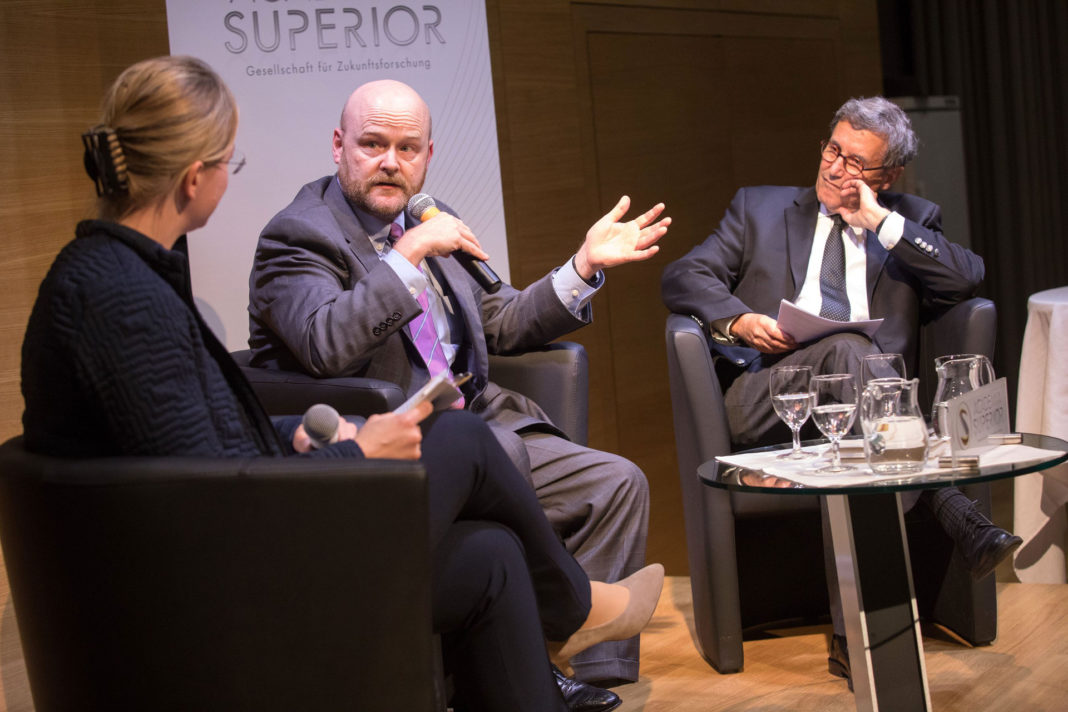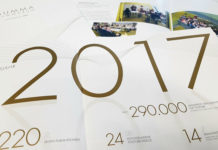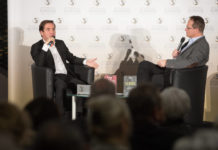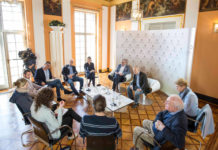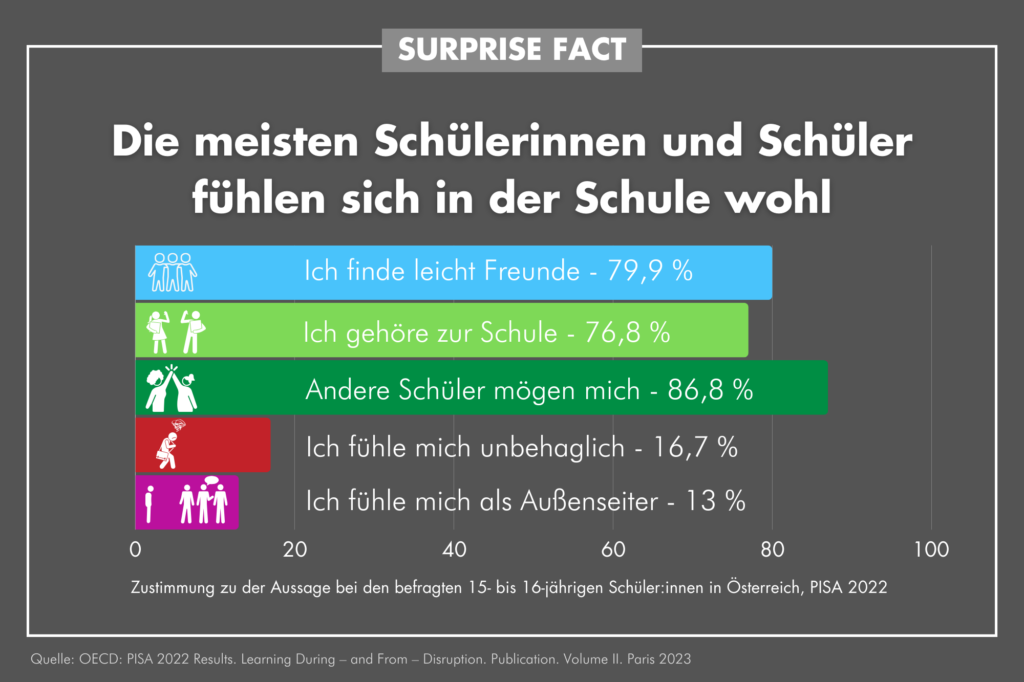Foreign policy expert James M. Lindsay and historian Mitchell G. Ash discussed the future of American engagement in the world. Lindsay is Senior Vice President of the Council on Foreign Relations, the most important think tank for American foreign and security policy. Ash is a historian of contemporary history at the University of Vienna and a member of ACADEMIA SUPERIOR’s advisory board. In cooperation with the US Embassy in Vienna, the discussion hosted by Dr. Claudia Schwarz, executive director of ACADEMIA SUPERIOR, took place at the Johannes Kepler University Linz.
President Michael Strugl made the relevance of the topic for Upper Austria clear: „The United States are Upper Austria’s second largest export market and the partnership between Europe and the US guarantees peace in Europe. This cooperation will be central for solving the big global problems of the future. The question of how the United States shape their foreign policy, will indirectly and directly affect us too”.
„We do not know whether there is a plan or just chaos.” — Mitchell Ash
The US foreign policy under Donald Trump is without a clear line. „In his policy it is not clear what’s planned, and what’s only the result of chance”, said historian Mitchell Ash. However, some outlines for the future direction are clear to the foreign policy expert James Lindsay: „Trump is not an isolationist. But he considers the commitment of the United States to a multilateral world order based on the rule of law for a mistake. He favors bilateral treaties between two states, because with them, he is able to better achieve the interests of the US. He therefore sees the transatlantic partnership also skeptical”, the foreign policy expert said. For him, the Europeans are not innocent of this attitude: „They call for more voice but are not willing to invest in their own military security”.
„Stay in respectful dialogue with Trump, but stay firm.” — James Lindsay
How to deal with the Trump administration best, to achieve good foreign policy results? On this question, Lindsay had a clear answer: „By meeting them with respect, dialogue and firmness”, was his recommendation. As far as he knows, Trump is sensitive to how people deal with him. The dialogue should not be broken despite all the differences. Especially important for Europeans: keep close to the common goals and not get divided. That’s how you can achieve the best results.
Latest challenges for US foreign policy are mainly the questions on North Korea, Syria and Iran, as well as the rise of China. In the longer term, however, the US would have to think more about other developments, such as technological progress and its impact on foreign policy; the increasingly complex linkage of the whole world; and the fragility of the global trading system.
„ ‘Make America great again’ is an unrealistic nostalgia.” — Mitchell Ash
For the US expert, the question of how the liberal and democratic world system can be strengthened again, is another important area. The historian Ash saw no suitable vision in sight with Donald Trump’s slogan „Make America great again”. „When people hear that, they think of the 1950s, when the US really dominated. They forget that back then the US were responsible for 50 percent of the world’s gross domestic product. This situation will never come back”, Ash said. What the US really need, according to the historian, would be a long-term, forward-looking and positive vision of how the US wants to be — and not a backward-looking nostalgia.
„The North Koreans know exactly what they want.” — James Lindsay
One of the toughest decisions, Trump has to make, is how the US will deal with North Korea. In the West there is often a wrong idea of the regime in Pyongyang, James Lindsay remarked, „Kim is not crazy and the North Koreans know exactly what they are doing”. It is clear to them that the US will not intervene militarily on the peninsula as this would cost enormous human sacrifice. The North Korean policy therefore aims to break the close military relations between South Korea, Japan and the USA. These two countries see the North Korean issue as central to their security. But, they too are aware of, that the US does not want to intervene militarily — so they will have to look for alternatives to the US security offer.
„No matter which decision Trump will make. It’s gonna be a tough decision. Because the costs the decision — whether the US will do something or just wait — is enormous”, the security expert Lindsay concluded.


